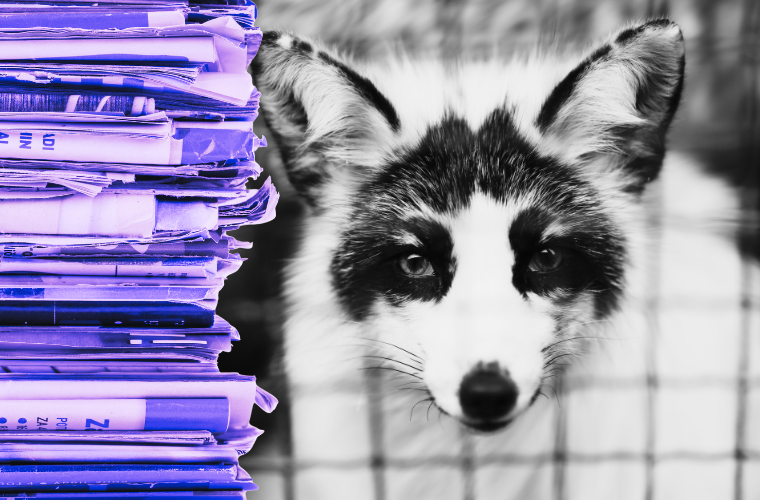Clothing/Cosmetics and Animal Abuse Article used with permission from All-Creatures.org
Anita Carswell announces the exciting news that Condé Nast, the parent company for Vogue and a number of other publications, has adopted a fur-free policy after years of pressure from activists.
Victory! Vogue Is Finally Going Fur Free
From Anita Carswell, IDA In Defense of Animals, idausa.org
October 2025

Images from Canva
In another major win for animals suffering in the fur trade, Condé Nast, the parent company for Vogue and a number of other influential publications, announced a fur-free policy for all of them.
While the new policy to exclude fur from editorial content and advertising, which was put in place under its sustainability strategy, still exempts used fur and fur considered a byproduct of subsistence and Indigenous practices, it still sends the message that fur isn’t fashionable, which will reach millions of people through Vogue and other publications, including Glamour, GQ, The New Yorker and Vanity Fair.
In Defense of Animals supporters helped to make this happen. In December 2021, we published an alert urging Vogue to commit to a public, permanent fur ban and to stop glamorizing skins taken from animals who suffer and die in the fur trade that gathered thousands of signatures.
This decision is happening during a leadership change at Vogue. Chloe Malle is now Head of Editorial Content for American Vogue. Her appointment reduced Anna Wintour's direct control over the U.S. edition, although Wintour still holds top roles at Condé Nast and Vogue globally. Animal protection organizations immediately appealed to Malle to drop fur.
That shift matters. Wintour spent decades defending fur, filling Vogue with fur-heavy shoots, and treating fur as status while ignoring or dismissing the cruelty behind it. She routinely protected fur as luxury, even as the industry relied on killing foxes, mink, rabbits, and coyotes for trim and collars. Activists protested her at the office, at events, and even in restaurants because Vogue under her control kept selling fur as acceptable.
This policy change did not happen because Vogue suddenly grew a conscience. It happened because people refused to let Vogue off the hook. Groups including the Coalition to Abolish the Fur Trade and PETA kept nonstop pressure on Vogue and Condé Nast with protests, direct outreach, and public exposure.
As one of the largest fashion publications in the world, designers, advertisers, stylists, celebrities, and readers take cues from Vogue. When it stops promoting fur, it signals that fur is not aspirational. It is cruel and dated. That helps cut demand, which means fewer animals trapped, caged, electrocuted, or skinned for fashion.
We are celebrating this step, but are also clear that it is not the finish line. We will keep pushing Vogue, Condé Nast, and the entire fashion industry to reject all clothing made from an animal's body.
To everyone who took action with us in 2021 and after, thank you. You helped move Vogue, and you are appreciated!
Posted on All-Creatures.org: October 31, 2025
Return to Clothing/Cosmetics Abuses Articles






